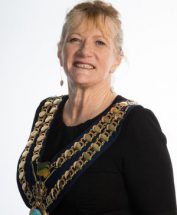NSW councils have voted to get rid of a $50 cap on gifts and benefits and to oppose requirements for them publish their financial interests.
Delegates at the LGNSW Annual Conference in Sydney on Tuesday voted to lobby the state government to scrap provisions in the Model Code of Conduct for NSW Local Councils which prevent them from accepting gifts and benefits worth more than $50.
All councils were required to adopt the new code, which includes new rules about accepting gifts and mandatory reporting of financial interests, by June this year.

It applies to more than 45,000 staff and nearly 1,300 councillors across the state’s 128 councils.
But Shellharbour City Council, which moved the motion, argued the gift and benefits provision presented “significant issues” for mayors and councillors who were invited to attend functions and events exceeding the current limit.
“What I do object to is an elected representative of my community being invited to an event in my community and not being able to accept the invitation to go because the value is more than $50,” Shellharbour Mayor Marianne Saliba said.
She said it was unfair because her state counterparts could accept events of up to $500.
A slippery slope?
Councillor Louise Steer from Inner West Council argued the provisions were about transparency and the motion represented a “slippery slope” to councillors “augmenting our income” through events, gifts and other forms of largesse.

“What sort of things would be acceptable? Art? Bottles of Grange? We’ve already seen where that goes at the state level,” she said, referring to the incident that led to the resignation of former NSW Premier Barry O’Farrell in 2014.
Michael Forshaw from Sutherland Council, a former NSW MP, said the argument was about parity of standards for elected officials.
“(Prime Minister) ScoMo can go to a Sharks game and put his cap on,” he said. “I’m a Sharks supporter … but if I get invited, that $50 is going to stop me from going. There is a total hypocrisy about this.”
Wollongong Lord Mayor Gordon Bradbery said councillors were being treated like second class citizens.
“To suggest we are somehow on the take is wrong. I’m just attempting to undertake my civic responsibilities as the Lord Mayor of the city,” he said.
Disclosure of interests

Meanwhile a second motion objecting to draft guidelines from the Information Privacy Commission requiring returns of interest disclosures to be published was also carried.
Moved by MidCoast Council, the motion called on the Office of Local Government and the IPC to reverse the requirement to publish returns of interest disclosures on a website, citing concerns for the safety of councillors and staff.
Cr Kathryn Bell from MidCoast Council said the requirement would take up staff resources and breach personal privacy.
“It has serious consequences of threats to individuals and family members including personal vendettas, malicious acts and identity theft,” she said.
However, speaking against the motion, Cr Steer denied it would have “dire consequences” and said the motion went back to transparency and accountability. The information was already publicly available on numerous websites and register, she added.
Among other motions passed, delegates also voted that LGNSW lobby for an increase in the processing charges for in the Government Information Act from $30 to $60 an hour “in recognition of the many hours spent processing these requests”.
The motion by Lismore City Council said the current $30 fee for application and processing had not been increased since it was introduced in 1989.
“The cost of processing an application is more than $30 per hour as the hourly pay rate of the staff processing the application is greater than $30,” Council said.
A total of 126 motions were voted on at the conference.





I Think transparency is the key issue here , If they are doing the right thing in connection with public duties they have nothing to fear.
Yes I agree to a point, however in this day and time $50 means next to nothing, there is also representation that has to be taken into consideration, maybe increase the threshold to $100 or $200 and have some exceptions for events up to a certain limit? whilst I can see Louise Steer’s concerns as being valid especially in light of Mr O’Farells case, but commonsense must also avail, speak to your IHC or talk with your risk/compliance team, get advice in writing so if its ever called up you can go back to that as mitigation.
Adding to all of this the Federal Government has announced its decision to have a gift register for gifts worth more than $100 for the federal public service sector.This register will be subject to public disclosure. I also agree with Violet Sullivans statement. One other thing why cannot pollies from both Federal/State and Local government levels adopt a com mon amount instead of varying amounts and then everyone will be on a level playing field with a common amount that can then be made to all Australians. This I would expect be to much lateral thinking and common sense at the same time to be adopted. But you never know?